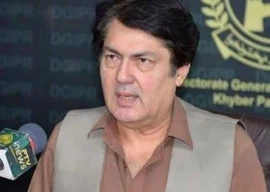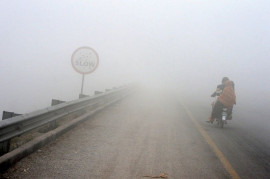
“The K-P government’s efforts for ensuring refugees access to basic services (health and education) and upholding the international norms and obligations are condemnable,” the UNHCR chief said.
Speaking to families of refugees, Guterres said nothing is as gratifying as going back to one’s own roots and motherland.
“No refugee is above the law of the host country, however, there needs to be a balance with the need to respect the rights of registered refugees,” he said.
Read: Afghan refugees: UNHCR chief urges Pakistan to review repatriation deadline
Addressing a joint press conference with the UNHCR chief at the UNHCR Voluntary Repatriation Center in Chamkani, Federal Minister of States and Frontier Regions, Lt Gen Abdul Qadir Baloch said, “All refugees will return to their home countries by December 31.”
“Refugees will be repatriated in three phases,” Baloch added, explaining in the first phase all people living in small camps will return, in the second phase people living in bigger camps and in the third all will return to Afghanistan.
Baloch added, “From June 25, the documentation process of un-registered Afghan refugees will start in Pakistan and all unregistered Afghan living in Pakistan will be registered.”
Further, the UN's top official for refugees urged the world not to "forget" the millions of Afghans forced to live for decades in Pakistan because of war in their homeland.
"The attention of the international community has been focused dramatically on the Middle East crisis in Syria, in Iraq, in Yemen," Guterres said, noting that Afghans were still the second largest refugee group in the world, after Syrians.
"My appeal is for the international community to understand that this is not only the responsibility for Pakistan or Iran or other neighbouring countries, it is a collective responsibility."
During his day-long engagement in Peshawar, the UNHCR chief also inaugurated the newly constructed Emergency Assessment Unit (EAU) at the Shaukat Khanum Memorial Cancer Hospital (SKMCH).
The new block will benefit around 9,500 patients per year, 25 per cent of whom will be Afghan refugees.
Guterres commended the unprecedented charitable work of the SKMCH in providing specialised medical care and free of cost treatment to thousands of underprivileged cancer patients in Pakistan, including Afghan refugees, for the past two decades.
The High Commissioner was briefed by the SKMCH team about the hospital project in Peshawar and was taken for a round of the newly constructed building.



1734689719-0/jlo-diddy-(3)1734689719-0-165x106.webp)
1734954517-0/Untitled-(90)1734954517-0-165x106.webp)



1734941776-0/Untitled-design-(9)1734941776-0-270x192.webp)

1734954312-0/Express-Tribune-(8)1734954312-0-270x192.webp)





1734778885-0/Untitled-(10)1734778885-0-270x192.webp)






COMMENTS (1)
Comments are moderated and generally will be posted if they are on-topic and not abusive.
For more information, please see our Comments FAQ